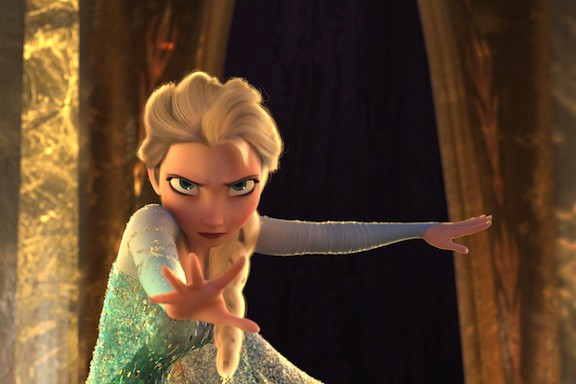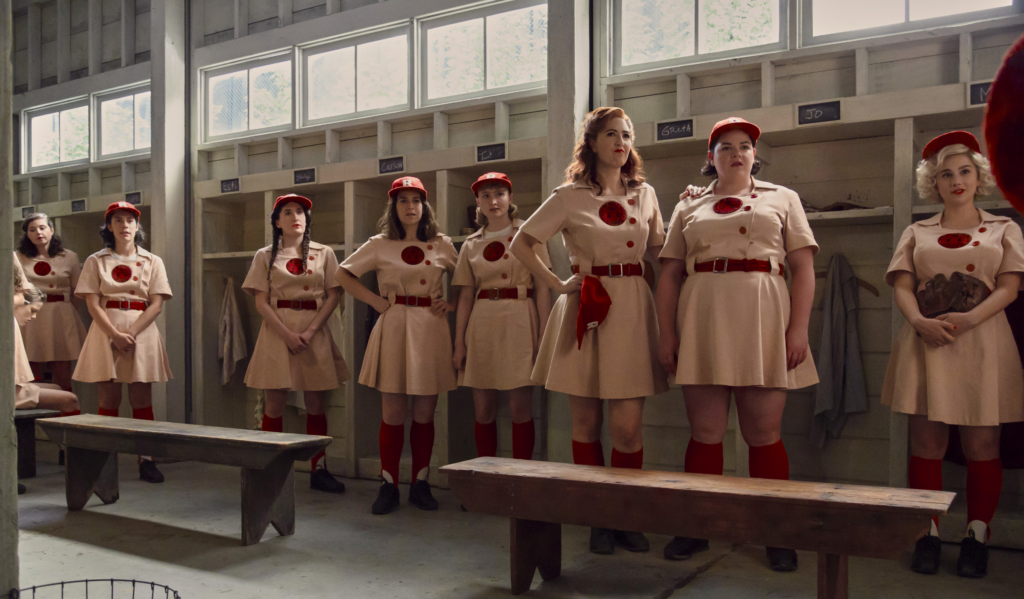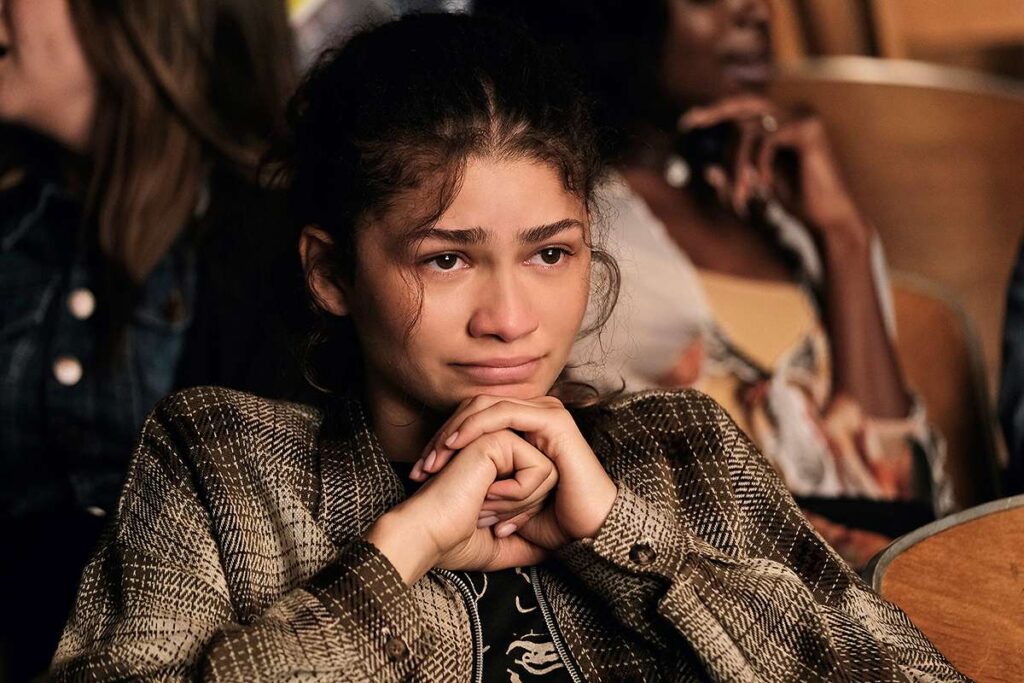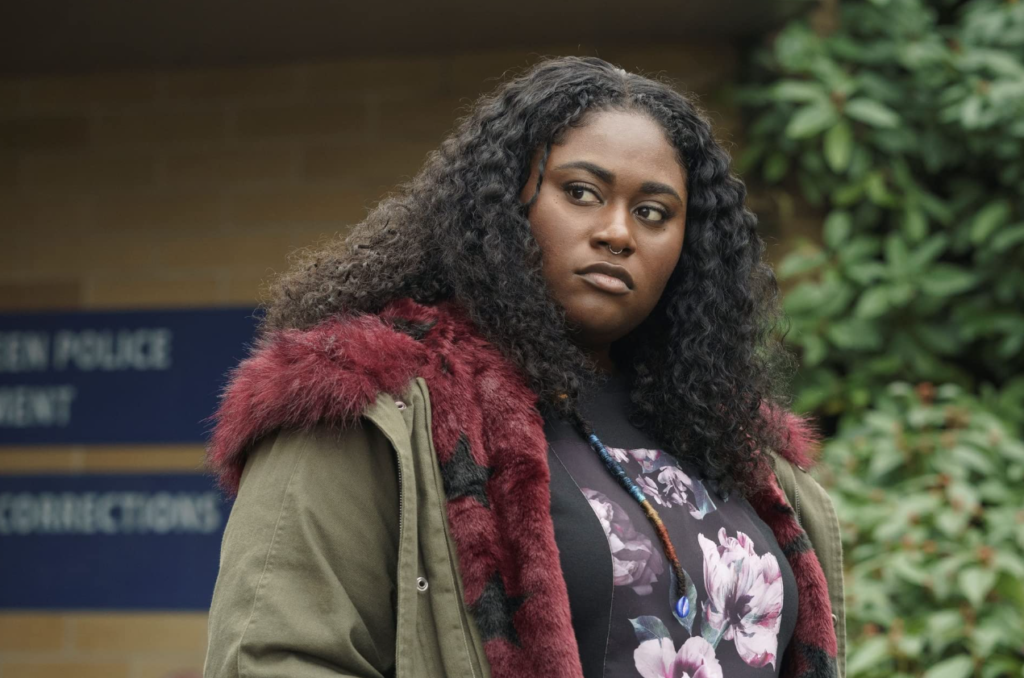Crossposted with permission from Awards Daily.
The WGA diversity report, released on April 15, delivered this rather devastating news about women screenwriters in Hollywood: While women and other minorities are doing a bit better on television, on film things are only getting worse:
Women Screenwriters Lose Ground in Film
In the film sector, women writers fell further behind their white male counterparts in 2012, accounting for just 15 percent of sector employment (down from 17 percent in 2009). Women remained underrepresented by a factor of more than 3 to 1 among screenwriters.
Gender Earnings Gap in Film Widens Again
The gender earnings gap in film has traditionally been greater than the gap in television. Women film writers earned just 77 cents for every dollar earned by white male film writers in 2012, down from 82 cents in 2009.
I believe there are many reasons for this and only of those reasons, a very small reason, can be laid at the feet of women. Where women are to blame really only has to do with women being, perhaps, less visually oriented than male writers. This isn’t strictly true, but it’s partly true and that means you actually have to think while reading their stuff. It tends to be far more complex than stuff that comes from the male mind where things are relatively simple. I’m only half-kidding. Visual storytelling rules the day in film so if women start thinking with less complexity and more simple visuals they would probably do a lot better. In other words, dumb it way way down. It also has to focus mostly on what men think and feel and want.
But in seriousness, women tend towards the dreaded “relationship movies.” And until they get unstuck in this genre — I know, we’re raised on fairy tales and hideous romantic comedies and force-fed this outdated notion that we need to be rescued to be happy. But we have to stop thinking this way, at least where providing entertainment and/or stimulating artistic masterpieces to the masses is concerned. Or even critics.
Basically we are looking at one singular demographic that controls Hollywood: the white male. The central white male figure, usually hetero. This male figure starts out in animated films — think Finding Nemo. Or Up. Or any animated film that makes a bazzillion dollars and isn’t a fairy tale. Central white male figure makes good — usually he’s a misfit, or flawed, but by the end of the movie he will have saved the day! Or gotten the girl! You get the idea. This theme is massaged and milked over and over again because, remember, there is only one demographic in Hollywood and it must be served.
Fanboy culture has heightened this phenom to an absurd degree. Now you aren’t even really required to actually grow up — you can dwell forever in the boyhood bubble of comic books and comic book movies and superheroes and superhero movies! There is an endless stream of nourishment for this generation, which was once that generation, and will soon be that generation.
But oh, if it were only fanboy culture — it isn’t. Look at the Oscar race. Everywhere you look (except last year’s respite, 12 Years a Slave). Singular white male figure is the hero. Women are the declaration. They can sometimes be “strong” within that context, or quirky! Or sexy. Either way, they are there ONLY to serve, or service, or promote the male figure who saves the day!
Almost all of the movies that have been nominated for Best Picture since Oscar changed the date, back in 2003 or thereabouts, Million Dollar Baby was the last film that featured any central character who was a female.
Crash
The Departed
No Country for Old Men
Slumdog Millionaire
The Hurt Locker
The King’s Speech
Argo
12 Years a Slave
These are all films, with the possible exception of Crash, where the main characters were male and the supporting characters were female. In fact, the females don’t really exist at all except to serve the male characters. Argo was, I believe, the absolute worst of these — with faceless, bland female characters who, quite simply, didn’t matter. At all. Good thing 12 Years a Slave came along where the female characters were very richly drawn. In fact, though 12 Years is about a central male figure it is so much a film about the women that Solomon Northup cannot protect. No character has it worse than the women. That film breaks with tradition, mercifully.
But let’s take it a step further. Let’s look at film the critics.
Los Angeles Film Critics:

What’s that, 46 males to 11 females? One demographic where the opinion of women have no real choice except to blend in.
And the New York Film Critics?
8 women to 26 men. While that’s slightly better than the LA Film critics, which is just plain embarrassing, it’s still an unequal representation.
Knowing how touchy film critics are at any charges of racism or sexism — one has to assume that they would have a problem with my even pointing this out. After all, they might be (mostly) white but that doesn’t color their impression of film. They are wholly objective. Their taste isn’t dependent upon their sex or their skin color. That might be true. And it might not be true.
I look at Darren Aronofsky’s Noah. Imagine, if you will, a woman — or even a black or Asian director — delivering that film. Had a woman directed Noah it would have gotten at most a polite pat on the back while being ridiculed as Christian fodder at best. At worst, an expensive, bland bomb. All women directors would have had to pay for a female directing Noah the next time any woman wanted to direct a “religious epic.” But that didn’t happen to Noah. Two words prevented that from happening: Darren Aronofsky. He is so revered by the (mostly white male) film critics that they were more than willing to give him a pass. You see, these directors in our culture are made into heroes. As such, they are almost always helped along by critics, even when they stumble, as Aronofsky did with Noah.
We myth-make male directors. They have several at-bats before a woman director would ever take the same shot. Even when their films bomb, they keep coming back. Women would be run out of town and told never to come back. Remember Mimi Leder? I would ask all film critics and bloggers to do some serious soul-searching. Imagine a female name on a screenplay credit. Would that give you pause? Would you think, oh, it’s going to be bad. You have to be honest about your feels before anything will change.
The economics of Hollywood are such that the only trustworthy artists are male. The male name brings with it reliability, trust. Every year a new male screenwriter, auteur or director is lifted up and celebrated as the next best thing. This rarely happens with women. Of course, some of that is due to the dreaded focus on the “relationship movie.” But there is something far more serious going on. It has to do with perceptions of women overall in our culture. Women have become decoration. We’ve given away our power for the chance to be admired by the opposite sex. What that has done is extinguish anything we have to offer beyond our beauty or sexuality — these gifts last about two seconds. Women have to be valued beyond their tits, ass, and quirk.
Making matters worse for women are the many voices out there making a fuss about stuff that doesn’t matter. James Franco? Doesn’t matter. Is Lena Dunham racist? Doesn’t matter. Are there only white characters in Frozen? Who gives a rat’s ass? That is what we call missing the bigger picture. Non-stories do nothing but deflate the potential power of mobilization.
What’s it going to take?
1. The five white guys in suits who run Hollywood to start using those balls they were born with. Frozen is a phenomenon. What does that tell you, boys? It tells you that there is money to be made on films that feature actual female characters with their own — GASP — character arc. The Hunger Games, anyone? It was the highest grossing film of last year. These examples should tell those five white guys in suits that they know nothing when it comes to making money in Hollywood.
2. The readers who get the scripts in the first place have to check their perceptions. Or maybe take the names totally off of the screenplays so people don’t know if they’re reading a man or a woman. Perhaps minds could be pried open to see the possibilities of what strengths women can bring to storytelling? Can we change the future of Hollywood? Maybe. Just maybe.
3. Women must start telling more universal stories. Just because the film stars a woman doesn’t mean it can’t be a universal story — Terms of Endearment, Norma Rae, Silkwood, Bonnie and Clyde, hell, Game of Thrones are all strong on female characters and strong on universality. Somewhere along the line those five white guys in suits selected women out, like they just didn’t matter anymore. Why? Romantic comedies? The sexualization of all young actresses so that if they aren’t the fresh hot piece of meat they are worthless? If so, Meryl Streep would not rule the box office. Think bigger.
4. It isn’t like Hollywood could do much worse. Seriously, what a wasteland the multiplex has become. Thank god for Oscar season, because if it weren’t for Oscar movies what would be left? Seems to me chances could be taken. And if they don’t succeed 100% why should women overall be written off? When the focus is on opening weekend — the economic equivalent of measuring dick sizes — that starts to limit choices overall. Can we not forget what movies can be, once were and could be again?
5. Probably nothing will ever fix this problem. There, I said it. Like climate change, perhaps we are simply too far gone to reel things back in. The blockbuster might just swallow up Hollywood completely and the ONLY good stuff left will be on television. We’re not quite there yet but we certainly could be. I think it’s time the five white guys in suits stopped thinking only about money.







